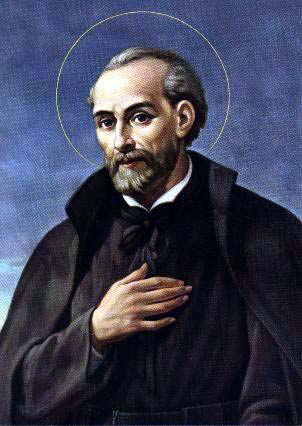
Trusting Gods Ways: Learning from Saint John Leonardi
Today we turn our hearts to a remarkable saint whose life teaches us about trusting God through times of change - Saint John Leonardi. Born in 1541 in Lucca, Italy, John lived during one of the most challenging periods in Church history. The Protestant Reformation had shaken the foundations of Christianity, and the Catholic Church was struggling with corruption and spiritual decline.
Yet John Leonardi didn't respond with despair or anger. Instead, he dedicated his life to Church reform, founding the Clerks Regular of the Mother of God. He worked tirelessly to educate priests, reform seminaries, and renew the spiritual life of the faithful. What made John special wasn't just his reforming zeal, but his unwavering trust that God was working through all the turmoil of his time.
John understood something profound that we need to remember today: God's ways of bringing renewal and change are often mysterious, sometimes slow, and always perfect in His timing.
Let us hear God's word from the prophet Isaiah, chapter 55, verses 8 and 9: "For my thoughts are not your thoughts, neither are your ways my ways, declares the Lord. For as the heavens are higher than the earth, so are my ways higher than your ways and my thoughts than your thoughts."
These words remind us that God sees the bigger picture that we cannot see. When we look at changes in our Church, in our communities, or in our world, we see only fragments. But God sees the complete tapestry He is weaving through history. Saint John Leonardi lived by this truth, trusting that even when Church reform seemed slow or met with resistance, God was accomplishing His perfect will.
God's Higher Perspective
Saint John Leonardi faced tremendous opposition in his reform efforts. Church officials resisted his attempts to improve priestly education. Political leaders questioned his methods. Even fellow Catholics sometimes misunderstood his motives. There were times when his work seemed to make little progress, when doors closed, when people rejected his message of renewal.
But John never lost sight of God's higher perspective. He understood that God's thoughts are not our thoughts. While humans often want immediate, dramatic change, God works through patient, persistent love. While we might choose force or manipulation, God chooses transformation of hearts. While we see obstacles, God sees opportunities for deeper faith.
John's trust in God's higher ways allowed him to persevere through decades of slow, sometimes painful reform work. He knew that God was accomplishing something far greater than what any human eye could see - the renewal of His Church from within, through changed hearts and renewed spirits.
Trusting Divine Timing
One of the most beautiful aspects of Saint John Leonardi's life was his patience with God's timing. When his religious community faced suppression and exile, John didn't become bitter. When his reforms took decades to bear fruit, he didn't give up. When he died in 1609, many of his dreams for Church renewal were still unrealized.
Yet John trusted that God's timing is perfect. He understood that lasting change happens not through human force, but through divine grace working in God's appointed time. The reforms John began continued long after his death, eventually contributing to the great spiritual renewal that strengthened the Catholic Church for centuries.
This teaches us something crucial about supporting Church changes today. We must learn to trust divine timing. Sometimes God works quickly, sometimes slowly. Sometimes His methods surprise us. But His timing is always perfect, and His ways always lead to greater good than we could imagine.
Our Response Today
So how do we apply Saint John Leonardi's example to our lives today?
First, we must cultivate patience with God's work in His Church. When we see changes that concern us, or when positive changes seem slow in coming, we can remember that God's thoughts are higher than our thoughts.
Second, we can support Church renewal through prayer rather than criticism. John Leonardi spent hours in prayer before the Blessed Sacrament, seeking God's will for reform. We too can bring our concerns about Church matters to God in prayer, trusting Him to work in His perfect way and time.
Third, we can focus on our own spiritual renewal. John understood that Church reform begins with personal holiness. Instead of pointing fingers at others, we can ask God to reform our own hearts, to make us instruments of His peace and renewal.
Finally, we can practice the virtue of hope. Even when Church changes seem difficult or confusing, we can trust that God is weaving all things together for good. His ways may be mysterious, but they are always motivated by perfect love for His people.

